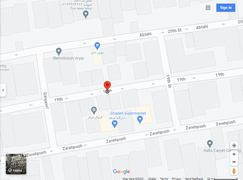Obesity in COVID19 era implications for mechanisms comorbidities and prognosis a review and meta analysis
Obesity in COVID19 era implications for mechanisms comorbidities and prognosis a review and meta analysis
Background: Recent studies have shown that obesity is associated with the severity of coronavirus disease (COVID-19). We reviewed clinical studies to clarify the obesity relationship with COVID-19 severity, comorbidities, and discussing possible mechanisms.
Mesenchymal stem stromal cells as a valuable source for the treatment of immune mediated disorders
Mesenchymal stem stromal cells as a valuable source for the treatment of immune mediated disorders
Over recent years, mesenchymal stem/stromal cells (MSCs) and their potential biomedical applications have received much attention from the global scientific community in an increasing manner. Firstly, MSCs were successfully isolated from human bone marrow (BM), but in the next steps, they were also extracted from other sources, mostly from the umbilical cord (UC) and adipose tissue (AT).
Assessment of Recovery Time Effects on Human Primary Neonatal Dermal Fibroblasts After Exposure to Solar-Simulated Ultraviolet R
Assessment of Recovery Time Effects on Human Primary Neonatal Dermal Fibroblasts After Exposure to Solar-Simulated Ultraviolet Radiation
Introduction: Photoaging that is accompanied by gene expression alteration is known as early aging of the skin due to overexposure to natural and/or artificial ultraviolet radiation (UVR). The assessment of gene expression alteration in human primary neonatal dermal fibroblasts depending on recovery time after exposure to solar simulated ultraviolet radiation (ssUVR) is the main aim of this bioinformatic study.
GMP-Based Isolation of Full-Term Human Placenta-Derived NK Cells for CAR-NK Cell Therapy in Malignant Melanoma
GMP-Based Isolation of Full-Term Human Placenta-Derived NK Cells for CAR-NK Cell Therapy in Malignant Melanoma
Melanoma, a severe type of skin cancer, poses significant management challenges due to its resistance to available treatments. Despite this obstacle, the high immunogenicity of melanoma renders it amenable to immune therapy, and NK cells have been identified as possessing anti-tumor properties in immunotherapy.
NF-kappa B signaling pathway is associated with metformin resistance in type 2 diabetes patients
NF-kappa B signaling pathway is associated with metformin resistance in type 2 diabetes patients
Introduction: Metformin is an essential medicine that is most widely prescribed frontline for the treatment of Type 2 diabetes (T2D). Metformin upgraded glycemic control in T2D patients without hypoglycemic effects in patients. This assessment aims to understand molecular mechanism mechanisms in non-responder patients to metformin.
Assessment of NB-UVB Effects on Skin of Atopic Dermatitis Patients: A Network Analysis
Assessment of NB-UVB Effects on Skin of Atopic Dermatitis Patients: A Network Analysis
Introduction: Atopic dermatitis is a common inflammatory skin disease which is treated with narrowband ultraviolet B (NB-UVB). Exploring the critical targeted genes in patients by UV radiation is the main aim of this study.
Advancements in Degenerative Disc Disease Treatment: A Regenerative Medicine Approach
Advancements in Degenerative Disc Disease Treatment: A Regenerative Medicine Approach
Regenerative medicine represents a transformative approach to treating nucleus pulposus degeneration and offers hope for patients suffering from chronic low back pain due to disc degeneration. By focusing on restoring the natural structure and function of the nucleus pulposus rather than merely alleviating symptoms, these innovative therapies hold the potential to significantly improve patient outcomes.
Potential role of Sigma-1 receptor inhibition and ER stress-related pathways in upregulating definitive endoderm markers in huma
Potential role of Sigma-1 receptor inhibition and ER stress-related pathways in upregulating definitive endoderm markers in human embryonic stem cells
Endoplasmic reticulum (ER) stress and unfolded protein response (UPR) participate in stem cell proliferation, differentiation, and apoptosis. Sigma-1 receptor (S1R) is a unique ER chaperon protein that regulates ER stress and UPR. Here, we examine the effects of S1R inhibition on pluripotency and differentiation of human embryonic stem cells (hESCs). hESCs were treated with different doses of an S1R inhibitor (BD 1047), and we investigated the expressions of different pluripotency and lineage-specific genes.
Highlighted gene expression alteration in human pancreatic isolated islets in patients with type 2 diabetes
Highlighted gene expression alteration in human pancreatic isolated islets in patients with type 2 diabetes
Objectives: Type 2 diabetes is a complex disease characterized by progressive β-cell failure. The primary mechanism underlying this failure is the progressive loss of pancreatic β-cell function. The aim of this study is to identify the key gene expression changes in human pancreatic isolated islets of patients with type 2 diabetes.
Incorporating NK Cells in a Three-Dimensional Organotypic Culture System for Human Skin Stem Cells: Modeling Skin Diseases and I
Incorporating NK Cells in a Three-Dimensional Organotypic Culture System for Human Skin Stem Cells: Modeling Skin Diseases and I
Abstract Natural killer (NK) cells are a part of a sophisticated immune system that is necessary for the skin because it is a crucial organ that is continually exposed to environmental influences. Recent studies have shown that NK cell incorporation into three-dimensional (3D) organotypic culture systems for human skin stem cells provides a physiologically relevant environment to study the interactions between immune cells and skin cells, making it a powerful tool for simulating skin diseases and researching these interactions. It has been shown that adding NK cells to 3D organotypic culture systems can improve keratinocyte differentiation and control inflammation in a variety of skin conditions, including psoriasis. In order to increase our knowledge of skin diseases and immune cell interactions, this work intends to propose an optimum approach for adding NK cells to a 3D organotypic culturing system for human skin stem cells. By better comprehending these relationships, researchers hope to develop novel tre












